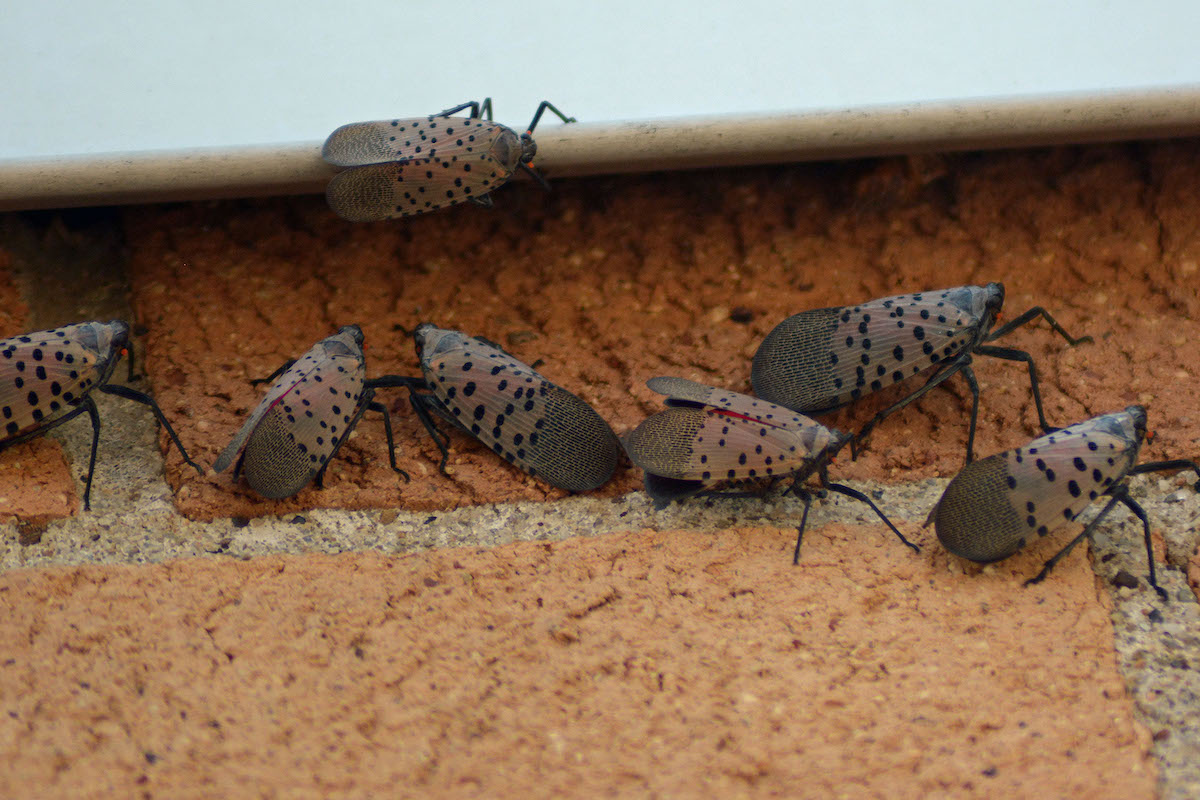(Advertisement)
Tube City Community Media Inc. is seeking freelance writers to help cover city council, news and feature stories in McKeesport, Duquesne, White Oak and the neighboring communities. High school and college students seeking work experience are encouraged to apply; we are willing to work with students who need credit toward class assignments. Please send cover letter, resume, two writing samples and the name of a reference (an employer, supervisor, teacher, etc. -- not a relative) to tubecitytiger@gmail.com.
Ads start at $1 per day, minimum seven days.
Residents Urged to Report Lanternfly, Other Pests
By Danielle M. Smith - Public News Service
The Tube City Almanac
April 27, 2023
Posted in: State & Region

Warmer winters and shifting weather patterns caused by climate change are magnifying the impact of invasive pests like the spotted lanternfly, say experts. (Tube City Almanac file photo by Vickie Babyak)
April is Invasive Plant Pest and Disease Awareness Month, and the U.S. Department of Agriculture is warning Pennsylvanians that it’s the best time of year to spot damaging, invasive species.
Invasive pests cost the U.S. about $40 billion a year in damages to trees, plants and crops, according to the USDA.
Kathryn Bronsky is the USDA’s national policy manager for plant protection and quarantine. She said hungry pests are often great hitchhikers, and people can accidentally spread them to new areas by traveling.
In particular, she said, experts are urging residents to be on the lookout for the spotted lanternfly.
According to the Pennsylvania Department of Agriculture, the spotted lanternfly was first discovered in 2014 in Berks County and since then has spread to multiple counties, as well as to Ohio, Virginia and Maryland.
“This is an invasive pest that feeds on a wide range of fruits and ornamental woody trees,” Bronsky said. “Tree of Heaven is the preferred host.”
Bronsky said lanternfly eggs appear as “masses” that look like little spots of mud. Pennsylvania residents should be vigilant about checking items like firewood, picnic equipment and other gear before moving it to avoid spreading the insects to new locations.
If residents spot the eggs, they can be killed by scraping them into a plastic bag and adding some hand sanitizer, or by simply squashing them, Bronsky said. Either way will help reduce the spotted lanternfly population, she said.
Bronsky pointed out that spring is an ideal time to detect invasive plant pests. This is the time of year when they start to emerge and are a little easier to see, she said, because there is less foliage on the trees.
“It makes it easier to see the damage that wood-boring beetles, like Asian longhorn beetle or emerald ash borers, create as they bore holes into the trees,” said Bronsky. “There’s also another one, called spongy moth, that are currently in their egg stage in April, and we can stop them from spreading before they emerge.”
She said climate change is magnifying the impact of invasive pests and has increased the level of infestations and diseases. Warmer winters are allowing some pests to produce more generations each year.
People can report sightings of spotted lanternflys and other invasive insects to the USDA online at hungrypests.com.
Danielle M. Smith is a producer for Public News Service, where this story first appeared. An award-winning radio journalist/personality with more than a decade of experience in broadcast media, she is a former audio journalist with American Urban Radio Networks and Sheridan Broadcasting Networks who also hosts a weekly community affairs show “Good News” on WGBN (1360 AM/98.9 FM).
Originally published April 27, 2023.
In other news:
"Re:Solve to Speak at …" || "WN Church Plans Elect…"
 TM
TM